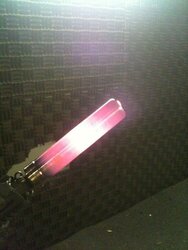I am curious if anyone has given this much thought, regarding the different alloys and high temp durations.
I am under the impression that sustained heat temps might warp a thinner 304 rigid liner if it was exposed to an overfire situation as in the case of Duraliner's 27 ga. 304 inner liner.
I am looking down the road for longevity and possibly a small chimney fire. I don't want to have to replace the liner if there ever became overfired.
My take on the matter is this;
If a rigid liner is of a thicker stock ie:24 ga. and/or a higher alloy ie:316, then it seems to reason that metalurgically it should be able to sustain higher and longer temps and may never need to be replaced even in the event of mild abuse , keeping into consideration how it is welded. Some may not be of a continuous weld whereas a spot weld product might get a wave between tacks. Thereby creating a breach for need of replacing.
I am under the impression that sustained heat temps might warp a thinner 304 rigid liner if it was exposed to an overfire situation as in the case of Duraliner's 27 ga. 304 inner liner.
I am looking down the road for longevity and possibly a small chimney fire. I don't want to have to replace the liner if there ever became overfired.
My take on the matter is this;
If a rigid liner is of a thicker stock ie:24 ga. and/or a higher alloy ie:316, then it seems to reason that metalurgically it should be able to sustain higher and longer temps and may never need to be replaced even in the event of mild abuse , keeping into consideration how it is welded. Some may not be of a continuous weld whereas a spot weld product might get a wave between tacks. Thereby creating a breach for need of replacing.


